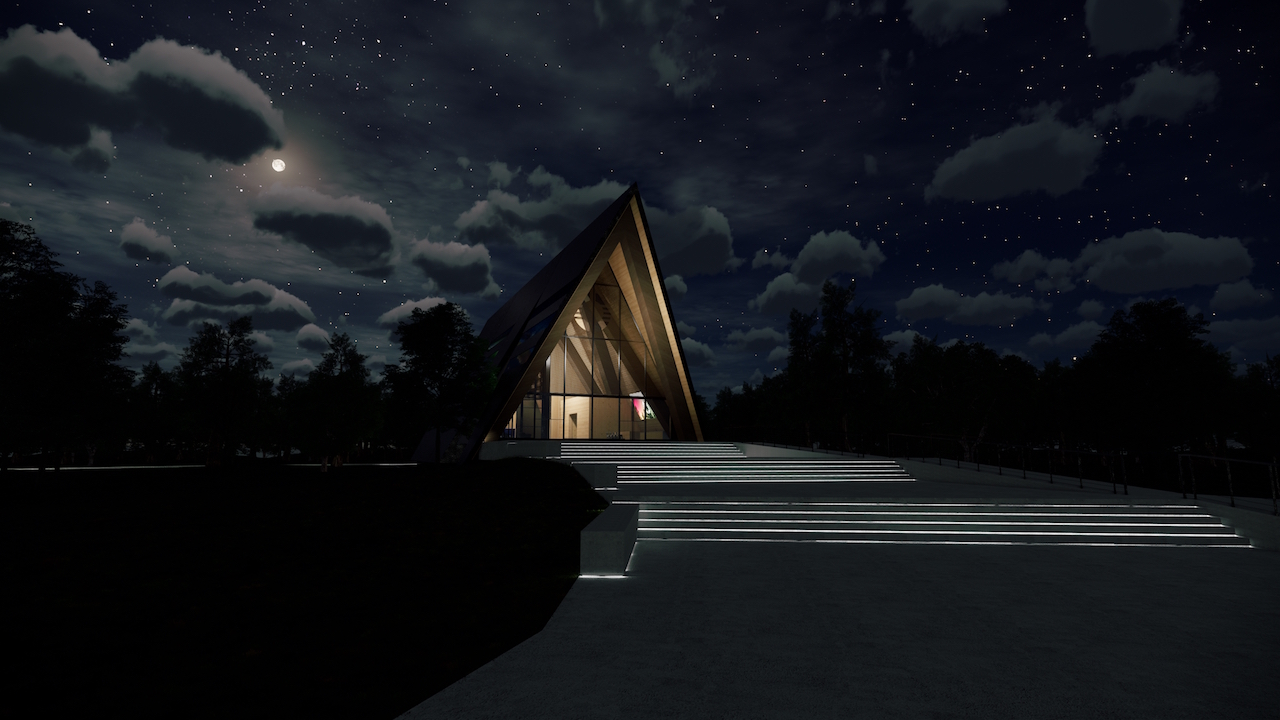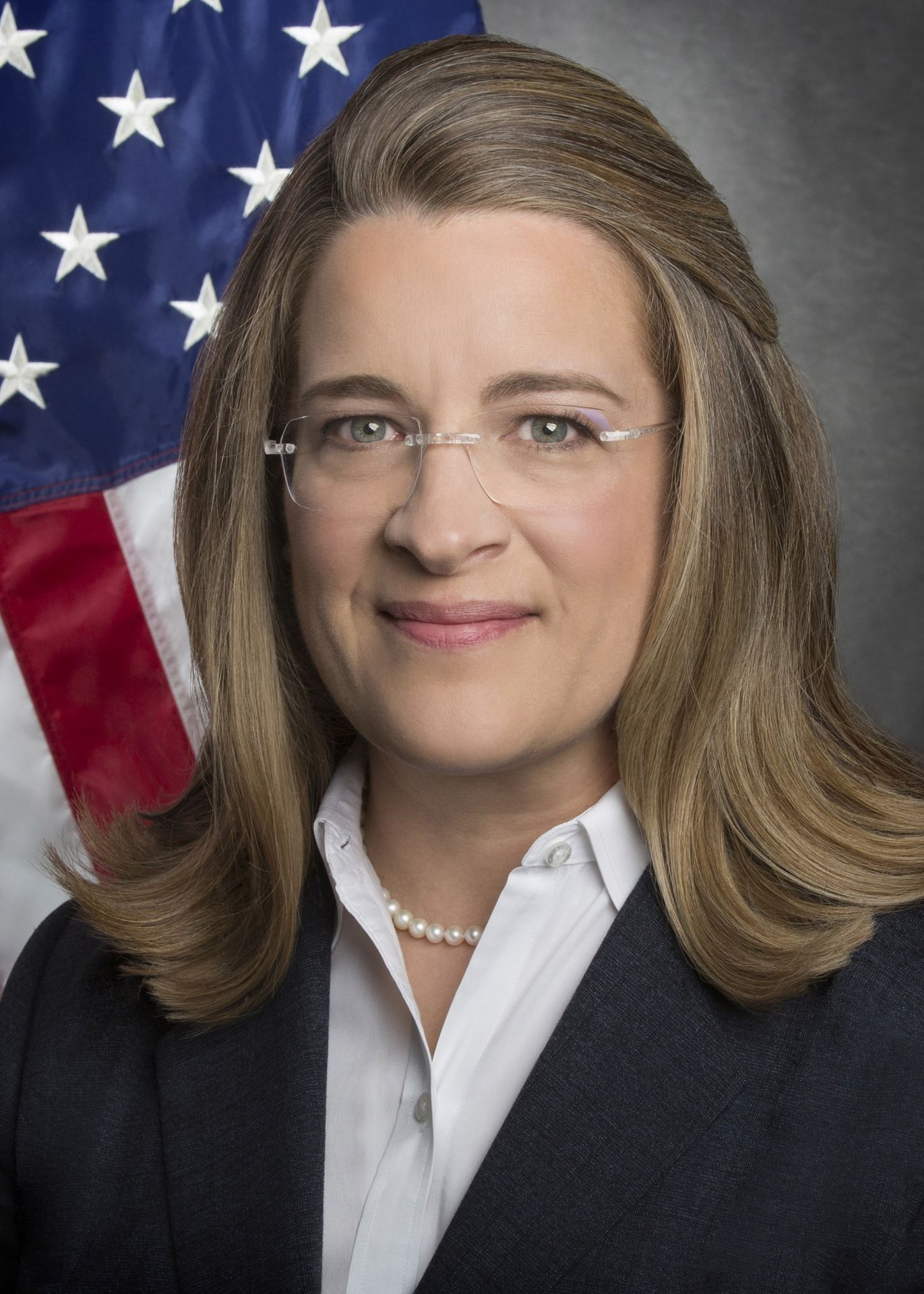The Cernavoda plant, in southeastern Romania. Photo: Wikimedia Commons/Zlatko Krastev
Romania has ratified a draft intergovernmental agreement signed in 2020 with the United States on cooperation in the field of nuclear energy. Initialed last October by Romania’s energy minister, Virgil Popescu, and the then U.S. energy secretary Dan Brouillette, the agreement, reportedly worth some $8 billion, calls for cooperation on completing the construction of Units 3 and 4 at Romania’s Cernavoda nuclear power plant, as well as the refurbishment of Unit 1. The European Commission gave its nod to the agreement last November.
An artist's rendition of Oklo’s Aurora powerhouse. (Image: Gensler)
California-based Oklo has received a $2 million cost-share award from the Department of Energy for the commercialization of advanced fuel recycling capabilities by using electrorefining technology. Oklo is matching $1 million in funds and is partnering with the DOE and Argonne National Laboratory on this public-private partnership, which is intended to help reduce fuel costs for advanced reactor designs while reducing waste by turning used fuel into advanced reactor fuel.
Vogtle’s Unit 3, earlier this month. Photo: Georgia Power
The Nuclear Regulatory Commission has launched a special inspection at the Vogtle new-build site to identify the errors that necessitated construction remediation work on Unit 3’s electrical cable raceway system.
Aerial view of Oconee Nuclear Station (Photo: ©Duke Energy)
Duke Energy has filed a subsequent license renewal (SLR) application with the Nuclear Regulatory Commission for the Oconee nuclear plant reactors, the Charlotte, N.C.–based utility announced on June 21.
Left: An experimental setup showing a shielded detector. Right: A DT neutron source showing three disks of 6Li doped glass scintillator mounted on a photomultiplier tube. (Photos: MIT)
Neutron resonance transmission analysis (NRTA) was developed by researchers at Los Alamos National Laboratory to identify unknown materials inside a sealed object using a beam of neutrons from a laboratory-scale apparatus. Recognizing that the potential nuclear security applications of NRTA were limited by the size and location of the apparatus, Areg Danagoulian, an associate professor in the Massachusetts Institute of Technology’s Department of Nuclear Science and Engineering, began about five years ago to consider how NRTA could be made portable to examine materials on location.
Centrus’s American Centrifuge Plant, in Piketon, Ohio. Photo: Centrus Energy
Centrus Energy Corporation has announced that the Nuclear Regulatory Commission approved the company’s license amendment request to produce high-assay low-enriched uranium at its Piketon, Ohio, enrichment facility. The Piketon plant is now the only U.S. facility licensed to enrich uranium up to 20 percent uranium-235, and it is expected to begin demonstrating HALEU production early next year, according to Centrus.
June 18, 2021, 12:06PMUpdated June 18, 2021, 4:50PMNuclear News The Byron nuclear power plant.
Exelon on June 16 filed with grid operator PJM Interconnection to deactivate the two Byron reactors in Illinois. The move came one day after the Illinois Senate adjourned without reaching an agreement on a comprehensive energy package that would have provided nearly $700 million to keep Byron’s reactors, as well as Exelon’s Dresden and Braidwood nuclear power plants, in operation. (In August of 2020, Exelon announced that it would close the economically challenged Byron and Dresden facilities in the fall of 2021 without some form of state aid to provide compensation for their clean power.) The state’s House of Representatives also adjourned earlier this week without taking up the bill.
What role will nuclear play in meeting clean energy goals?
The 2021 ANS Annual Meeting brought together three leading chief executive officers from the nuclear industry on June 16 for a discussion centered on the future role of nuclear energy deployment and the challenges of portfolio management during a time of net-zero carbon goals.
ITER CS Module 1 (shown here at right with the General Atomics fabrication team) is being loaded onto a specialized heavy transport vehicle for shipment to Houston, Texas, where it will be placed on a ship for transit to France. (Photo: General Atomics)
After a decade of design and fabrication, General Atomics (GA) is preparing to ship the first module of the central solenoid—the largest of ITER’s magnets—to the site in southern France where 35 partner countries are collaborating to build the world’s largest tokamak and the first fusion device to produce net energy.




















